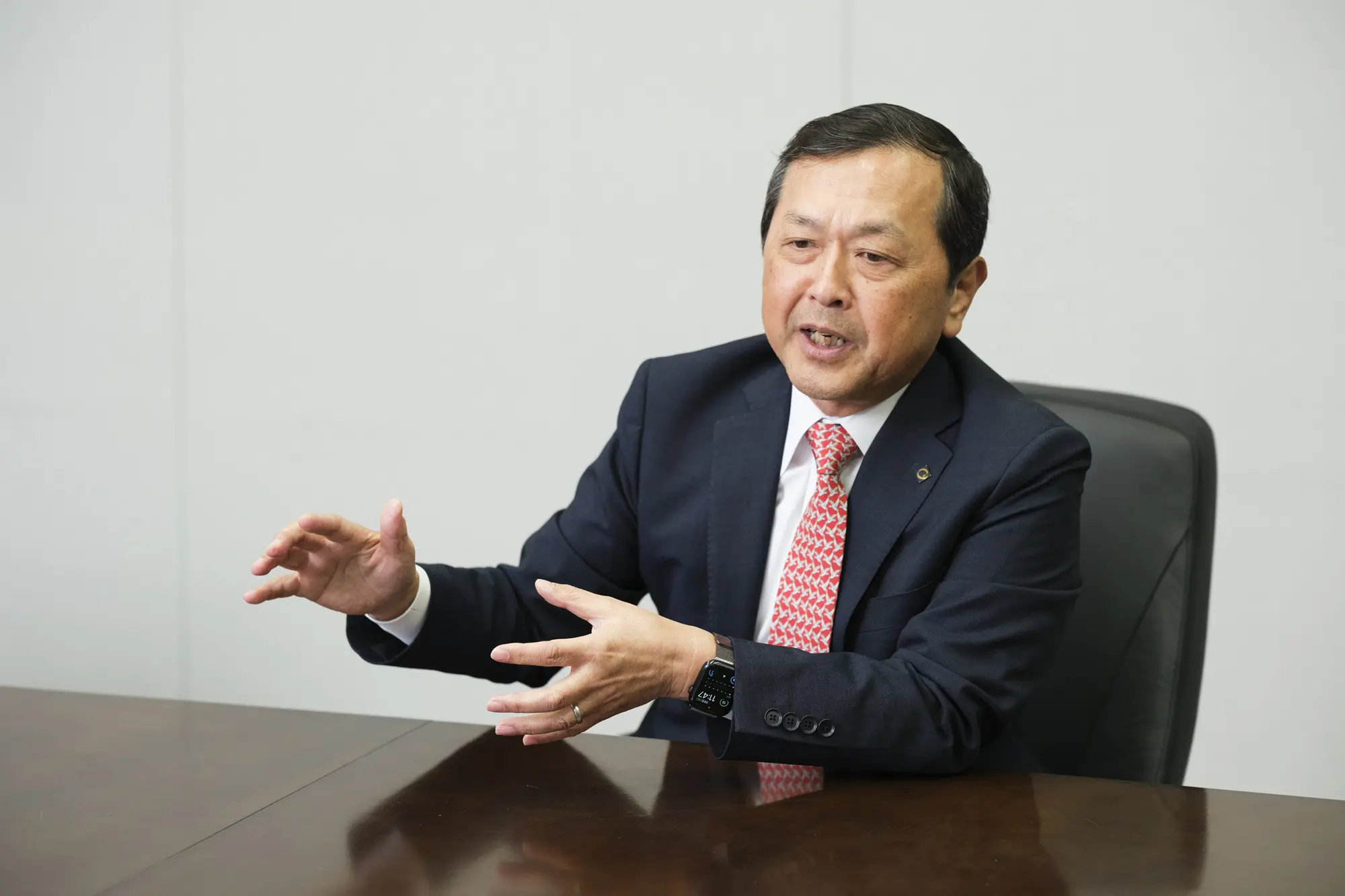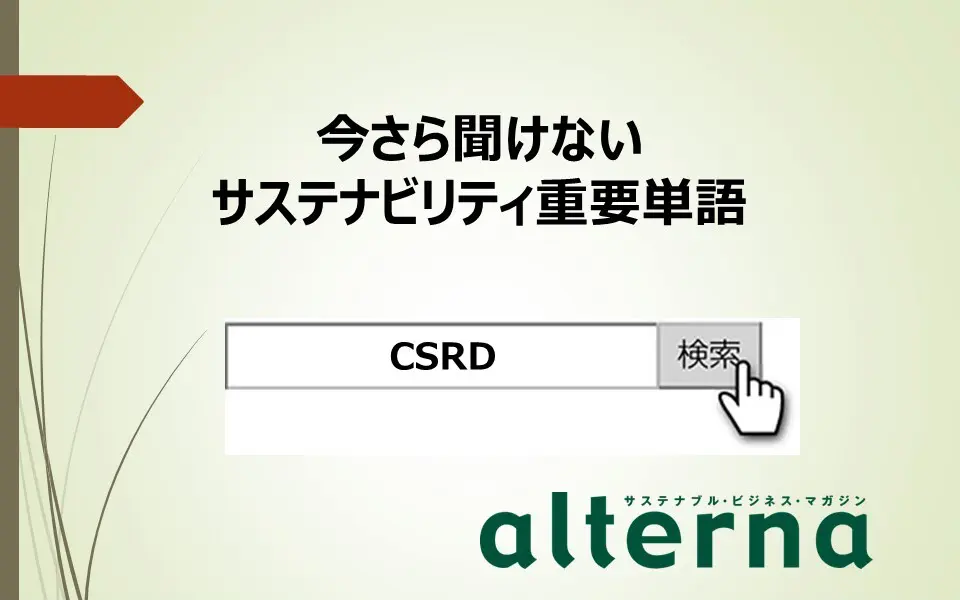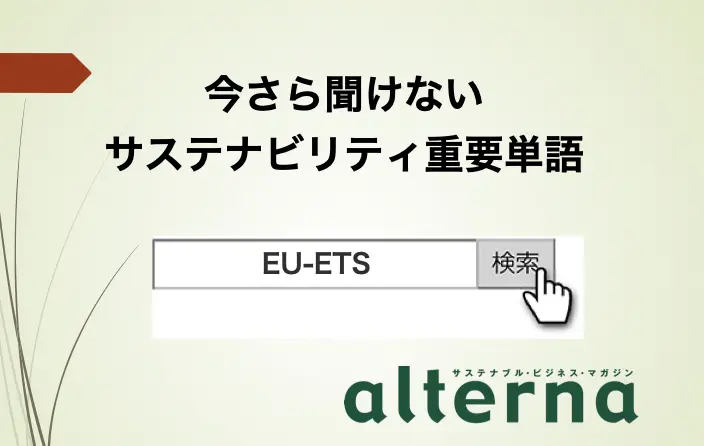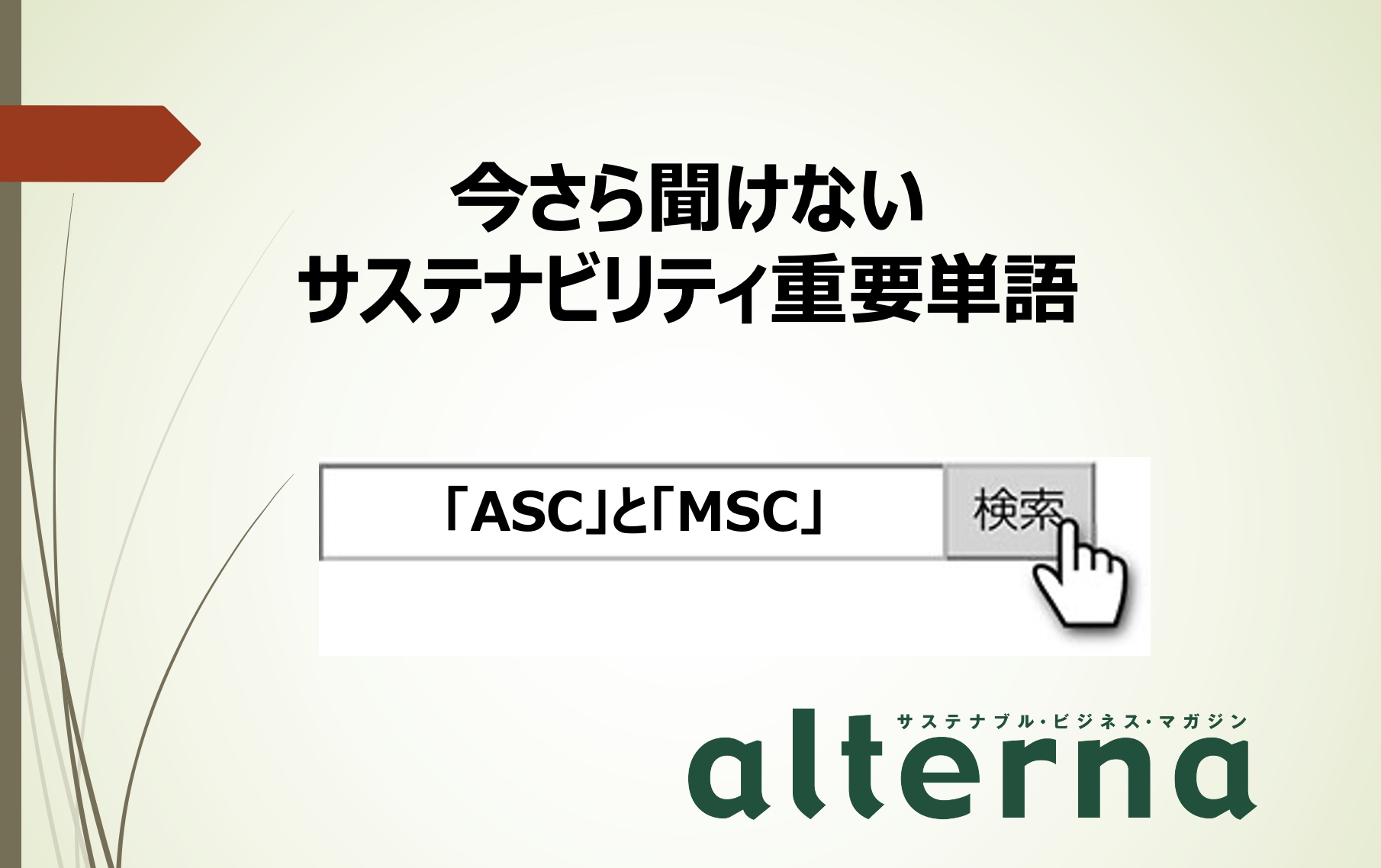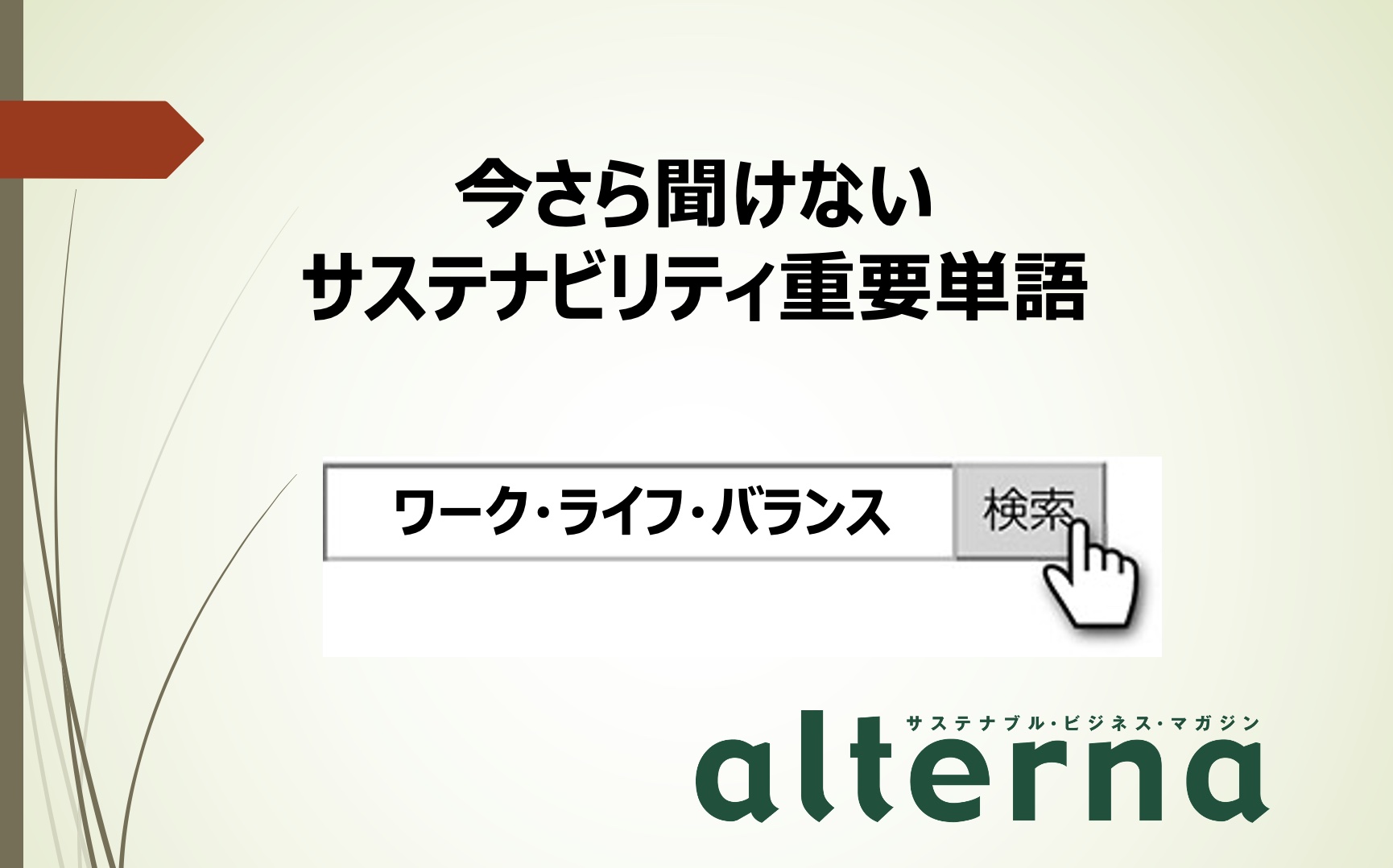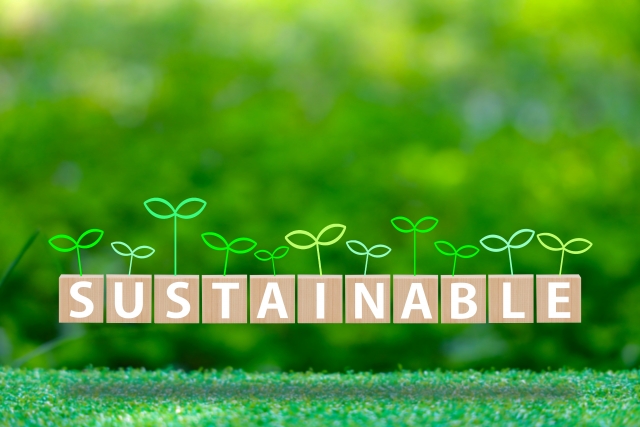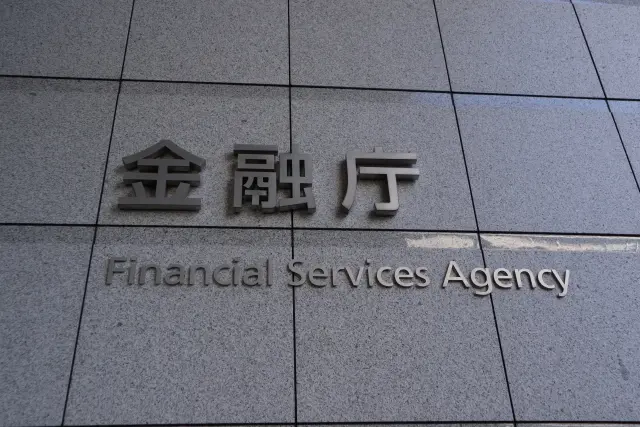■オルタナ式英単語:Business and Human Rights
皆さんこんにちは!
今月はLesson9 “Business and Human Rights「企業と人権」を取り上げます。
一般に、日本企業はCSRの中でも人権についての取り組みが遅れがちであるといわれています。なぜ遅れているのか、まずは何からどのように進めるべきか、等考えながら読んでいきましょう。また「権利」「働き方」に関する重要語が多く出てきますので、確認してください。
【語注】
violate 侵害する
adopt 採用する、採択する
covenant 契約
elimination 除去、廃止
discrimination 差別
torture 拷問
cruelty 残虐さ、残虐な行為、虐待
ratify 批准する
treaty 条約
refugee 難民
migrant 移民
abolition 廃止
remedy 救済
implement 実施する
corruption 腐敗
remedy 救済(策)、治療薬
amend (法律などを)改正する
人権とは
All people are born with human rights equally which could not be transferred to others. The right to live in dignity as a human being should not be violated for any reason. If violated, it should be defended. Based on the concept. the Universal Declaration of Human Rights was adopted in 1948 and celebrated its 70th anniversary in 2018.
【訳】
すべての人々は生まれながらにして人権を有しています。人権は他に譲ることができないものです。人間らしく尊厳を持って生きる権利はどんな理由があっても侵害してはならず、侵害されれば防御されなければなりません。この思想に立脚した世界人権宣言が1948年に採択され、2018年に70周年を迎えました。Transferは「移動させる、乗り換える」の意味としてお馴染みかもしれませんが、このように「譲渡する」意味でも用いられます。
The Universal Declaration of Human Rightsはこちらを参考に。Universal Declaration of Human Rights | United Nations
In the meantime, we have seen some progress and achievements in the international human rights standards. The Convention on the Elimination of Racial Discrimination, International Covenants on Human Rights (Social and Civil Rights Covenants), the Convention on the Elimination of All Forms of Discrimination against Women, the Convention against Torture and Other Cruelty, the Convention on the Rights of the Child, and the Convention on the Rights of Persons with Disabilities have all been enacted and enforced. Japan has ratified and joined these treaties and has committed itself to abide by them internationally. Nevertheless, there remain many challenges related to human rights, including poverty, refugees, migrants, and environmental destruction. We need to continue to work on solving these problems.
【訳】
この間に、国際人権基準は進捗し、一定の成果を上げてきました。人種差別撤廃条約、国際人権規約(社会権規約、自由権規約)、女性差別撤廃条約、拷問等禁止条約、児童の権利条約、障碍者権利条約などが制定されたのです。日本はこれらの条約を批准・加入しており、順守することを国際的に約束しています。とはいえ、貧困、難民、移民、環境破壊をはじめとする人権課題は多々残されており、今後も努力を続けなければなりません。In the meantime は「その間に、そうこうしている間に」。Convention は「会議、集会」ですが、国家間の正式な契約、協定という意味でも用いられます。Covenantも「契約」です。こちらは旧約聖書における「神との契約」からきています。
Enact は「(法律を)制定する」、enforceは「施行する」です。abide byは「従う、遵守する」。セットで覚えておきましょう。
企業に求められる人権尊重の責務
There is a growing demand for companies to respect human rights. In 1998, the ILO Core Labour Standards were adopted, relating to the elimination of all forms of forced or compulsory labour, the abolition of child labour, freedom of association and recognition of the right to collective bargaining, and the elimination of any discrimination in employment and occupation. In 2000, the United Nations Global Compact was launched, calling on companies to adhere to ten principles on human rights, labour, environment and corruption. Now, more than 13,000 companies and organizations in more than 160 countries (including 290 in Japan) have expressed support.
【訳】
企業にも人権尊重を要請する声が強まっています。1998年にはILO中核的労働基準が採択され、「強制労働の禁止」、「児童労働の禁止」、「結社の自由・団体交渉の承認」、「雇用及び職業における差別の撤廃」が定められました。2000年には国連グローバル・コンパクトが発足し、企業に人権、労働、環境、腐敗に関する10原則の順守を求めたのです。いまでは160か国以上の13000を超える企業・団体(日本の290を含む)が支持を表明しています。Associationはもちろん「関連、連想」「協会」ですが、このように「結社」という意味で用いられています。collective bargainingは「団体交渉」。
In 2008, the United Nations Framework for Protection, Respect and Remedies was adopted. It calls for three things: governments are to have a duty to protect against human rights violations by third parties; businesses are to have a responsibility to respect the human rights of all people in all aspects of their corporate actions; and victims should have access to remedies. In 2011, the UN Guiding Principles on Business and Human Rights were developed to provide specific guidance for implementing this framework.
【訳】
2008年には、国連「保護、尊重及び救済」枠組が採択されました。政府には国民を第三者による人権侵害から保護する義務、企業には企業行動のあらゆる局面ですべての人の人権を尊重する責任、容易にアクセスできる救済措置の確立の3つを求めています。2011年にはこの枠組みを実施するための具体的な指針として国連「ビジネスと人権に関する指導原則」が策定されました。
なお、3つの柱に関する原文はこのようになっています。The “Protect, Respect and Remedy” Framework rests on three pillars: the state duty to protect against human rights abuses by third parties, including business, through appropriate policies, regulation, and adjudication; the corporate responsibility to respect human rights, which means to act with due diligence to avoid infringing on the rights of others and to address adverse impacts that occur; and greater access by victims to effective remedy, both judicial and non-judicial
Microsoft Word – UN Protect, Respect and Remedy Framework Outline.doc (business-humanrights.org)
我が国における喫緊の人権課題
In Japan, a national action plan for the “Guiding Principles” is still being formulated. It is required to steadily promote the SDGs and, in the process, to establish a strong sense of respect for human rights. Legal support for those who have been placed in vulnerable situations is also being promoted. In addition to the Equal Employment Opportunity Law, the Women’s Career Advancement Promotion Law, the Revised Employment Promotion Law for Persons with Disabilities, and the Act on Appropriate Use of Skills Training have been enacted, and the Immigration Control Law regarding the acceptance of foreign nationals are also set to be amended. However, in reality, we still have discrimination and human rights violations against women, people with disabilities, the elderly, foreigners, consumers, and the value chain to be overcome.
【訳】
日本においては指導原則の国別行動計画が現在策定中です。SDGsも着実に進めて、その過程で人権尊重意識を徹底することが求められています。弱い立場に置かれてきた人たちに対する法的支援も進められています。男女雇用機会均等法をはじめとして、女性活躍推進法、改正障碍者雇用促進法、技能実習適正化法などが施行され、外国人受け入れに関する出入国管理法改正も日。しかし現実には、女性、障碍者、高齢者、外国人、消費者やバリューチェーンにおける差別・人権侵害が存在し、克服すべき課題になっています。
本書刊行後の2020年10月、日本政府は「ビジネスと人権」に関する国別行動計画(National Action Plan on Business and Human Rights, NAP)を策定しました。基本的な考え方として(1)政府、政府関連機関及び地方公共団体等の「ビジネスと人権」に関する理解促進と意識向上、(2)企業の「ビジネスと人権」に関する理解促進と意識向上、(3)社会全体の人権に関する理解促進と意識向上、(4)サプライチェーンにおける人権尊重を促進する仕組みの整備、(5)救済メカニズムの整備及び改善の5点が挙げられています。100104258.pdf (mofa.go.jp)
言うまでもなく、NAPは 策定することがゴールではなく、これをいかに実践していくかが重要です。とくにコロナ禍等不確定要素が多い今日にあっては、長期的な目線と短期的な目線をともに働かせ、より現状に即した実践が求められるといえるでしょう。
2022年3月、経済産業省は「サプライチェーンにおける人権尊重のためのガイドライン検討会」を設置しました。人権デュー・ディリジェンスに関する業種横断的なガイドライン策定を目的としており、この夏には取りまとめが予定されています。
今月はここまでです。また来月お目にかかりましょう。



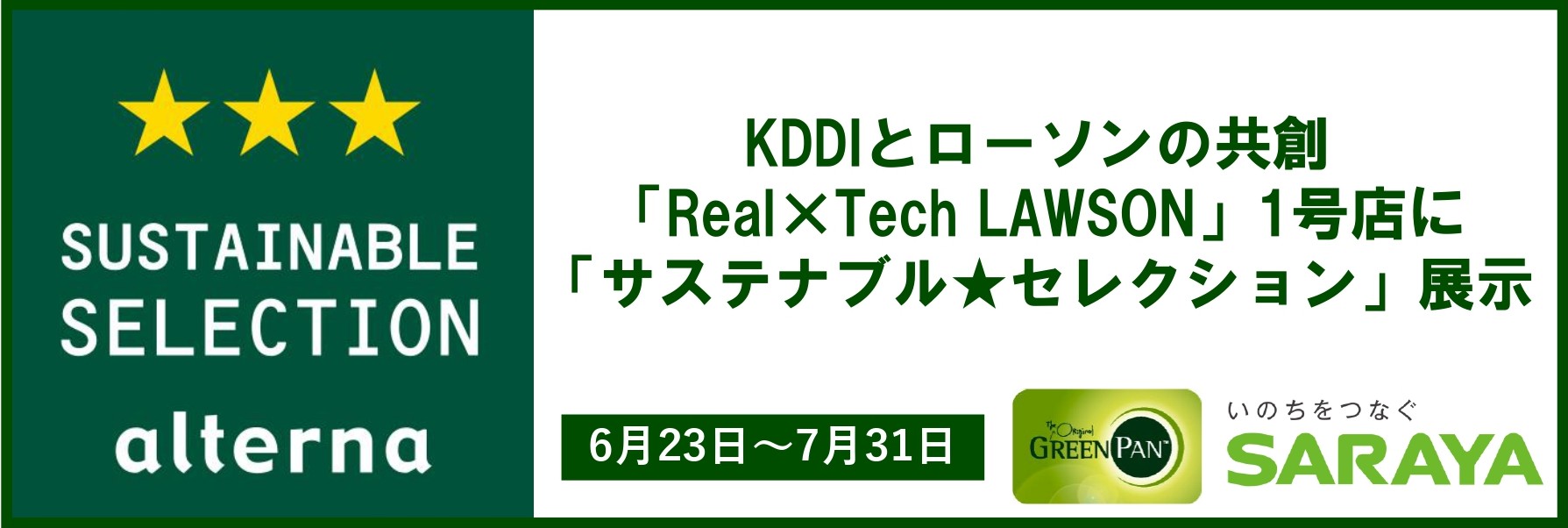
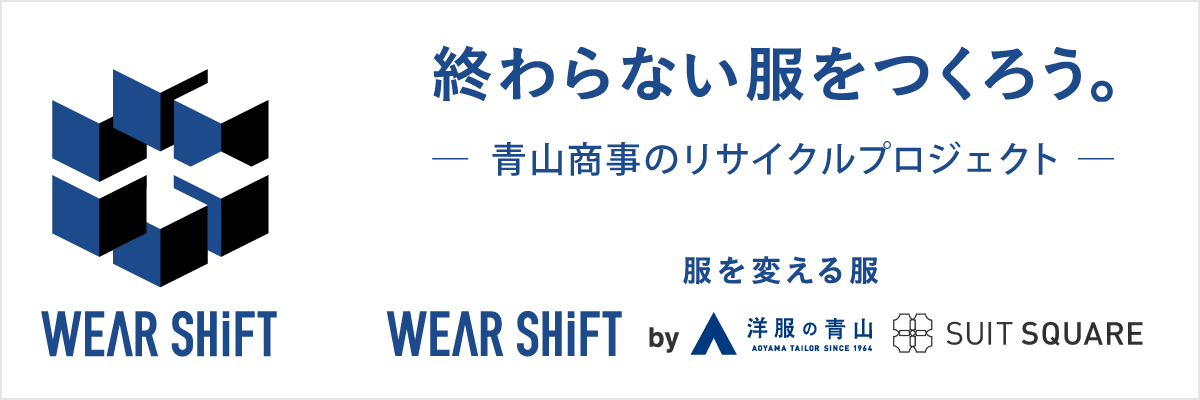




-1-scaled.jpg)

-scaled.jpg)
